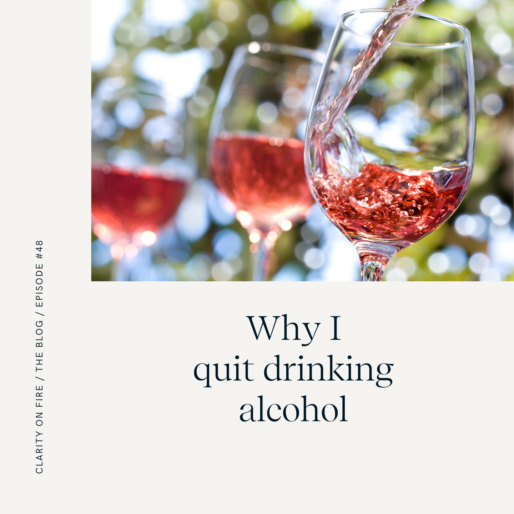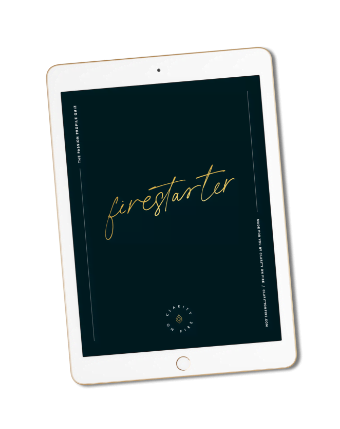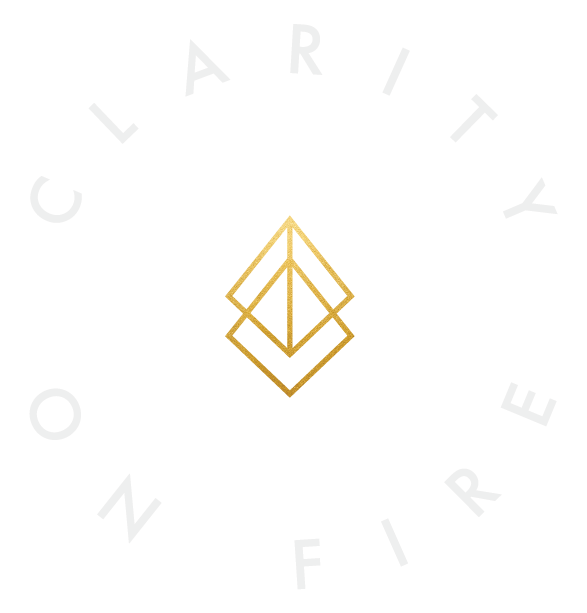Click the play button below, or subscribe and listen through our podcast on iTunes, Stitcher, or Google Play.
Podcast: Play in new window | Download
We got a question that was intended for our monthly Dear Krachel podcast segment, but it’s a subject that I’ve been considering writing about for a long time, so I decided to tackle it at length in a blog, instead!
Here’s what Mary wrote:
“Hi Rachel!
You had mentioned on a your podcast that you haven’t had an alcoholic beverage in many years. I was wondering if you wanted to share what brought you to this life change.
My husband has been sober for over a year and a half, and I went through the rocky journey of cutting back/abstinence. I have now participated in “dryuary” (no drinking in January), took a break in April and am now completing a 90-day break. This is huge for me and challenging at times. Overall I feel better for it.
I got excited when you shared you don’t drink and wanted to know your story, since I feel this lifestyle is very connected to socializing, productivity, and general outlook on life.
I’m not saying I’m never going to drink again, but would love your input on the subject since it’s so prevalent in our society. I listen to you and Kristen religiously and respect your interpretation of life.”
Mary is right — there are a lot of implications, both personal and social, when it comes to quitting something that a majority of people enjoy. It can be frustrating, lonely, and intimidating to break away from the crowd for any reason, let alone one that’s so woven into the culture.
So, I’m getting into the reasons why I stopped drinking alcohol, as well as how to deal when you want to go your own way but are afraid of being judged or left out.
WHY I QUIT
Honestly, the main reason I quit drinking was because I was desperate to feel better.
I’ve struggled with digestive sensitivities all my life, and after more than two decades of pain and many unhelpful procedures and prescriptions, I was willing to do just about anything to restore my health.
Thankfully, over the past decade I’ve radically changed my diet and lifestyle habits to the point where I’m about 98% healed. At this point, while I could probably drink without it affecting me as awfully as it did in my twenties, I have no interest in trying.
Because, beyond my health struggles, I never really loved it in the first place. And that gets to my less prevalent, but no less significant reasons for remaining abstinent.
I DIDN’T WANT TO BE A BOOZE BOT
If you’re at all familiar with me, you know that I’m an old soul. My internal age has got to be around 80.
In college, I would have been over the moon if keggers had been replaced by deep conversation over coffee or tea, followed by everyone going to bed promptly at 11pm.
So, while I partied and had fun like any “normal” young person, it always felt a little bit false — like I was being what a college kid was “supposed” to be, rather than who I really wanted to be.
After college, I had less patience for the twenty-something partying mindset. I had no interest in being what I called a “booze bot”: someone who automatically goes to the bar every weekend, opens the hatch and pours booze down it, because they don’t know what else to do and are afraid of prying further into their own feelings.
THE NUMBING SCARED ME
The way I saw people using alcohol worried me. It was clear that, for a lot of people, it was a convenient numbing device — a way to avoid the discomfort of existential angst and feel more interesting, for a short time, than you felt in your daily life.
And even if it wasn’t being used to numb, I didn’t like the assumption that alcohol makes everything more fun.
Maybe this is my snark showing through, but if you need alcohol to make your life fun or interesting, then shouldn’t you be motivated to get to the bottom of why your life isn’t fun or interesting in the first place?
I think, for better or worse, I’m a truth-teller. It’s hard for me not to see through to the core of what’s really going on. To me, the way a lot of people used alcohol felt dishonest, like they wanted to avoid the deeper layers of difficult truth in their own lives. And I’m just not wired that way. I’m compelled to look, even when it’s painful.
Also, I’m a highly sensitive person. I’m prone to anxiety, mood swings, and bouts of depression. Alcohol is a depressant, and I’ve heard that drinking on top of depression is like pouring gasoline on a fire — I wasn’t interested in making my feelings anymore volatile than they already were.
IT WAS A RELIEF TO QUIT
I quit the day after my older brother’s wedding. I was only occasionally drinking before that, anyway, but the few glasses of wine I drank that evening were enough that I spent half the night draped over the toilet. My body supremely rejected the notion of drinking, so I decided to listen.
And honestly, it was a HUGE relief.
Do you know that feeling you get when you’re doing something that feels really “you”? That sense of alignment and peace? That’s how I felt about not drinking after years of trying to be someone who drank.
And you want to know what happened? No one cared or judged me.
I’m not saying that’s a normal experience; in fact, I think that it’s probably a bit rare.
HOW TO QUIT WITHOUT FEELING JUDGED
Alcohol is a pervasive part of the culture. It’s something that goes hand-in-hand with socializing. I can understand why, for someone like Mary who’s considering giving it up, you might be afraid to either miss out on the fun or be judged for abstaining.
As far as feeling left out goes, I don’t think there’s any need to feel that way! After all, the point of socializing isn’t supposed to be about the drinking; it’s supposed to be about the camaraderie. You can have plenty of fun, if not more fun, participating with a clear mind.
But I think the fear of missing out is tied up in the fear of being judged — that if people somehow perceive you as a wet blanket, they’ll leave you out. Or, they’ll include you but shame you for not partaking.
Here’s the deal with judgment:
People tend to judge you when they take your life choices personally.
It’s common for people to hear that you’re not drinking (or whatever it is you’re doing that goes against the grain) and think, “Are they saying there’s something wrong with me if I DO drink?”
Making a counter-cultural choice triggers people, because it often makes them feel like you’re judging them. So they, in turn, judge you in retaliation.
Personally, I think if you’ve got friends and family who do this, I’d think twice about how often you associate with them. Because there comes a point at which a mature adult should know that another person can make a decision that isn’t a commentary about their life.
However, if you’re worried about this, then just make it clear that you don’t judge them and are totally cool with their choices. It’s just something you’re doing for you.
Which is exactly what I still do. I have plenty of friends who enjoy alcohol, and we happily hang out without it being an issue. I don’t judge them, and they don’t judge me. We respect each other’s preferences.
Also, it helps that my friends are all introspective, self-aware people who aren’t using alcohol to numb out or as a crutch to seem more fun or interesting. They enjoy alcohol in a moderate, pleasure-enhancing way, which is the way it was intended.
BREATHE THROUGH THE DISCOMFORT
But, because I can’t be anything but honest, I’ve got to tell you that it is possible to lose friends when you make a big choice like this.
It will absolutely hurt and feel like the worst kind of rejection — being dismissed for something that feels authentic and right to you.
If that happens, mourn the loss, but don’t try to hold on to the friendship.
If someone falls away because you made a change that’s healthier for you, they weren’t meant to be around for the long haul, anyway. That vacuum will get filled, over time, by people who can accept you as you are.
And one more thing:
If you’re considering cutting back on or giving up alcohol — maybe you’re uncomfortable with how often you find yourself craving it, or you don’t want to numb anymore — you need to address the deeper issues of why we tend to lean on mind-altering substances, in the first place.
The best place to start is with unblocking yourself, emotionally. A big reason we numb out is because we don’t know how to process our feelings and are afraid of having to sit with uncomfortable emotions.
Check out our episode with Joanna Platt about emotional constipation, as well as our side chat about being a highly sensitive person for more on those subjects.
So, what about you? Has this resonated, or made you uncomfortable in any way? I’m always here to talk about it, in the comments!
Much Love,
Rachel (& Kristen)




I love this! I quit drinking 2 years ago and I’ve never looked back. I did lose some “friends” because of it, but it was more my decision. I realized we were only party acquaintances and not real friends so it was no big loss. I didn’t like the way I felt and the company I was keeping in that lifestyle- it was no longer conducive to the life I was wanting for myself. A lot of people don’t understand, but it’s not theirs to understand anyway. Thanks for this blog! I think it’s great 🙂 And good for you for quitting!
Good for you for making that change, Natalie, and for having the courage to detach from friends that weren’t really friends anymore! I’m glad you resonated with my experience! 🙂
Hi girls, nice post. I think its all about moderation, I love drinking and socialising, but also love NOT drinking and socialising- and I totally resonate with the judging experience! . The book Four Agreements sums it up perfectly- never take anyones judgments or criticism personally because its never personal and just a mere reflection of their own projected fears and insecurities.
Love the way you said that, Maria! And yes, framing this in light of the 4 agreements is exactly right!
Looks like you stopped drinking around the same time I became vegan! Although different, it sounds like somewhat of a similar experience. Most friends and family are super supportive and willing to accommodate my preferences. I also felt a sense of alignment and peace for living in line with my personal values. Thanks for the article!
Being vegan is very similar! I’m not totally vegan, but I rarely eat wheat, dairy, or meat, and there can be that same fear that people will judge you, think you’re being a “pain,” or willfully misunderstand you. I’m glad the people in your life have been supportive!
Love this article, bravo to you! I’m an alcoholic in recovery for 7 years now and part of why I kept drinking was the thought, I’ll never have fun again. Such a dangerous way to think and it’s so false. Towards the end of my drinking it caused depression and thoughts of not wanting to live anymore. That’s what excess alcohol does to you.
I am uncomfortable when I go on a date and watch men’s reactions when I don’t order alcohol. If they are not interested in a second date I always wonder maybe they are worried I’m an alcoholic in recovery and they don’t want to take that on. It’s a horrible thought.
I have two daughters ages 29 and 31 who I watch at times drink to the point of vomiting the next day or just being drunk in my presence and worry this drinking will cause them to develop a problem and another generation showing it’s hereditary.
I’m also talking to them about alcohol and sending articles but this may not always be effective and can just make them annoyed with me. I may just send them this article!
Hi Bridget! It’s interesting; my first thought about why men react to you not ordering alcohol was way more about THEM. Like, “Why does this guy feel uncomfortable with her NOT drinking? Why does he feel weird about that?” Not at all about you! It didn’t even occur to me that they might think you’re an alcoholic. I actually think it’s a red flag that someone would judge you for not drinking, and a good sign that you don’t want a second date with them, regardless of whether they want another date with you!
As for your daughters, it’s SO hard to see other people potentially struggling with something that has given you such pain in your life. It’s natural for you to worry about them and want them to have a healthy relationship with alcohol. It’s a very hard line to walk between being there to offer support and an alternative perspective, versus trying to “fix” people who simply aren’t ready to hear what we have to say. So it’s OK to share things with them; and maybe they’ll listen if and when they’re ready. But it’s also OK if they have to come to certain realizations on their own time. It’s really hard to watch, but it can also be what’s best for their own personal development!
Yes and ditto to all the above! Alcohol is a downer and it numbs. Why would you want to cover up your beautiful self with all that. There are so many things in the culture that are asking us to forget who we are why add to that? At the same time, it’s cool when you can hang out with people who don’t judge you for your choices and vice versa! I don’t drink coffee either but do go to Starbucks and other cafes with friends. Thanks Rachel for another great post and sharing this with us! It made me happy today brought a smile to my face as I was having a hard day!
Aww, I’m so glad that this helped make your day better, Mimi! Thank you for reading and commenting! 🙂
Omg this article could have been writte by me!!! These have been my exact observations about alcohol: “why are we drinking this? Are we that boring without booze?” I’ve considered quitting, I also have IBS and its always a guesswork whether I’ll feel awful the next day or not, or whether I will end the night throwing up.
I’m so glad this hit home with you Hanna! And if you decide to give it up, know that you have at least one person who fully supports you. 🙂